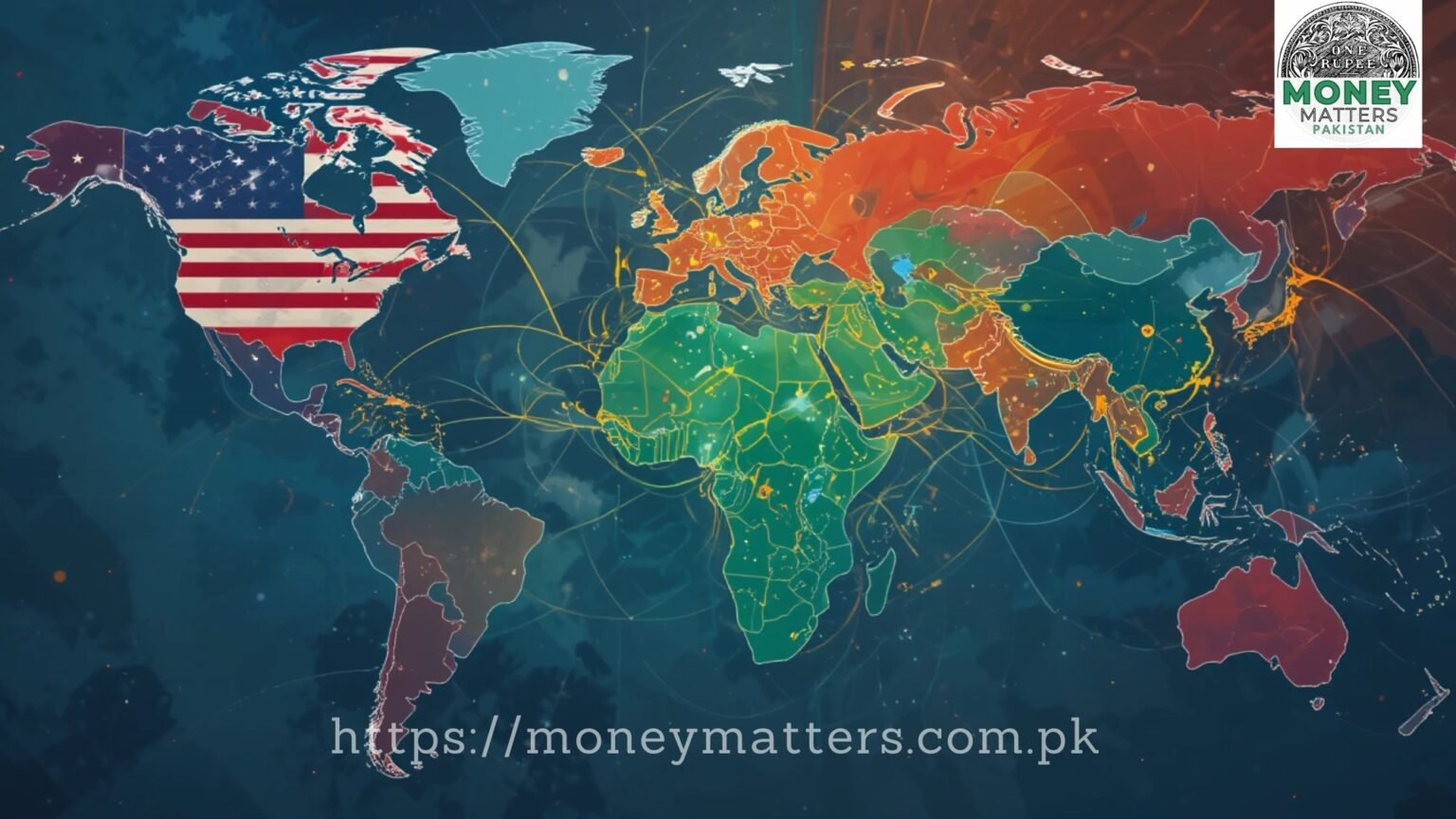An analysis by Money Matters Pakistan editorial team
Key Takeaways:
i) Global trade dynamics between the US and China present potential benefits for Pakistan.
ii) Strategic engagement and effective trade policies will be crucial for Pakistan to capitalize on these shifts.
iii) The long-term impact will depend on the sustained evolution of US-China trade relations and Pakistan’s response.
Islamabad, Pakistan – April 12, 2025 – Recent analyses suggest that Pakistan stands to gain from the evolving trade relationship between the United States and China. The ongoing trade dynamics, characterized by tariffs and shifting global supply chains, could open avenues for Pakistan to enhance its position in the international market.
The current trade landscape between the United States and China is undergoing significant shifts, influenced by tariffs and a re-evaluation of global supply chains. These developments, while creating some global economic uncertainty, also present potential opportunities for countries like Pakistan to increase their participation in international trade.
Pakistan, with its growing economy and strategic location, could find itself in a position to attract businesses looking for alternative manufacturing and sourcing destinations. The ability of Pakistani industries to adapt to changing global demands and offer competitive advantages will be key to realizing these benefits.
The long-term impact on Pakistan’s economy will depend on the sustained nature of these global trade dynamics and the country’s strategic response.
The textile sector, a significant contributor to Pakistan’s exports, could see new opportunities as global trade patterns adjust. However, capitalizing on these opportunities will require proactive trade policies and effective engagement with international partners. The long-term impact on Pakistan’s economy will depend on the sustained nature of these global trade dynamics and the country’s strategic response.
Background Information:
The trade relationship between the US and China has been a major factor in shaping global commerce for decades. Periods of cooperation and competition have influenced supply chains, investment flows, and economic growth worldwide. Recent trade tensions have prompted businesses to explore diversification strategies and governments to reconsider their trade policies. According to a report by the World Trade Organization (WTO), global trade growth has been impacted by these ongoing dynamics.
Pakistan’s government has been focusing on improving the country’s trade and investment climate to attract foreign businesses and boost exports. Initiatives aimed at enhancing infrastructure, streamlining regulations, and offering incentives are part of this effort.




